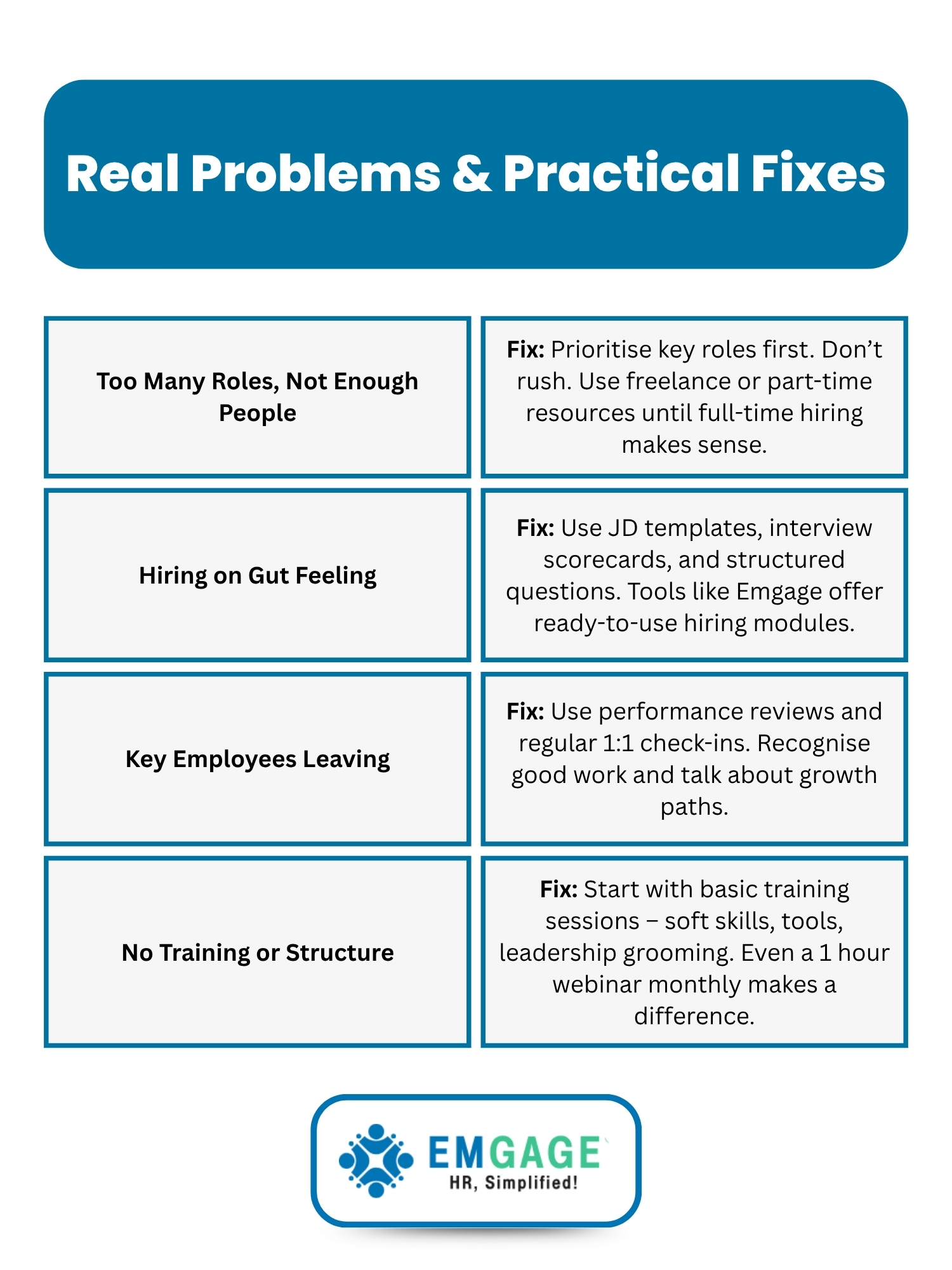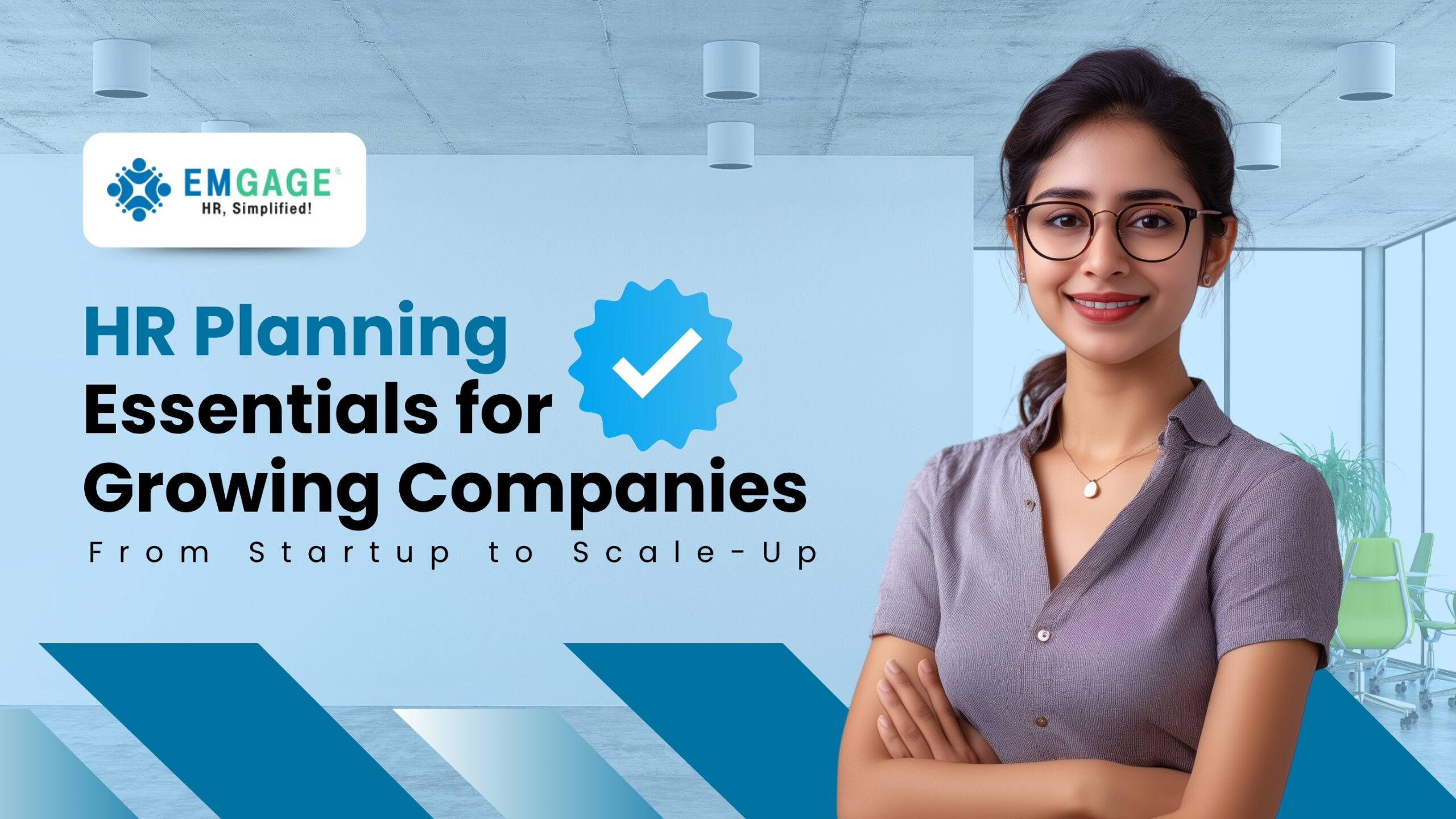From Startup to Scale-Up: HR Planning Essentials for Growing Companies
If you’re running a startup, you already know it’s a rollercoaster ride. But as your business starts to grow, one thing becomes crystal clear: you can’t manage people the same way you did when it was just five of you in a rented office.
That’s where Human Resource (HR) planning comes in.
HR planning is all about making sure you have the right people, with the right skills, at the right time. Simple in theory, but powerful in practice.
What Exactly Is HR Planning?
Think of HR planning as your people strategy.
Just like you plan your marketing or finances, you need to plan your workforce. It helps you answer:
- How many employees do I need next year?
- What kind of roles will I need as I expand?
- Am I training my team for future responsibilities?
- How can I retain my top performers?
Why Startups Often Ignore HR Planning
Let’s be honest. Startups focus on survival first. You’re trying to get customers, build your product, and stay ahead of the competition.
Many founders think HR is only for big companies.
But by the time they realize HR is essential, problems have already popped up, including high attrition, poor hiring decisions, and confusion during team expansion.
Avoiding HR planning is like going on a road trip without Google Maps, exciting, but you’ll probably take too many wrong turns.
The 5-Step HR Planning Process (Simplified for Growing Companies)
Let’s now simplify HR planning into five easy steps.
1. Workforce Analysis – Where Are You Today?
Start by understanding your current team.
- What roles do we have?
- Are some teams overworked?
- Who are your star performers?
Use a core HR platform like Emgage to track attendance, leave, and performance automatically, so you get a clear picture in minutes.
2. Forecast Future Needs – Where Are You Going?
Match your business goals with people’s needs.
Planning to scale your operations? Going international? Launching new services?
Forecast what roles and skills you’ll need.
Example:
If you’re planning to double your client base, you’ll need customer support, sales, and maybe an HR exec to keep things smooth.
3. Identify Gaps – What’s Missing?
Once you know where you’re going, compare it to where you are.
- Are your people skilled enough for the next stage?
- Are you relying too much on 1 or 2 key employees?
4. Create an Action Plan – How Will You Get There?
This is your step-by-step people plan:
- Who to hire, and when
- What to train
- Leadership and succession planning
- HR budgets
If budget is a concern, payroll outsourcing can be a cost-effective way to manage growth without increasing headcount.
5. Monitor and Adjust, Keep It Flexible
No plan is perfect. Check every 3-6 months and adjust.
Your market may shift. Priorities change. And people come and go.
Use remote HR solutions to set reminders for reviews, automate performance tracking, and stay aligned even across hybrid teams.

How Emgage Helps with HR Planning
Emgage is a smart HRMS for SMEs designed specifically for Indian startups.
- Digital onboarding and employee database
- Attendance, payroll, leave, and shift management
- Performance tracking and reporting
- Labour law compliance
- HR automation with zero complexity
No need to be an HR expert. Emgage gives you ready-made systems that grow with you.
Whether you’re a startup or scaling fast, schedule a demo to explore how Emgage can streamline your entire HR workflow.
Bonus Tips for Founders
- Don’t delay HR planning. Start even with a simple plan.
- Automate routine tasks. Your time is valuable.
- Build a culture early. It’s harder to fix later.
- Recognize and reward. Appreciation goes a long way.
- Train and grow leaders. Your next manager could be your current intern!
Five Most Frequently Asked Questions on HR Planning for Growing Companies
Q1. What is HR planning and why is it important for small businesses?
A: HR planning is the process of forecasting workforce needs and managing talent accordingly. For SMEs, it ensures smooth operations, saves costs, and supports growth without chaos.
Q2. When should a startup start formal HR planning?
A: Ideally, when you’re scaling beyond 10-15 people. But even before that, it helps to put basic systems in place like leave tracking, payroll, and onboarding.
Q3. What’s the biggest HR planning mistake startups make?
A: Relying only on gut feeling for hiring and ignoring internal growth opportunities. Not tracking performance also creates long-term gaps.
Q4. Can HRMS tools replace a full-time HR manager?
A: For small teams, yes. HRMS platforms, such as Emgage, can handle most day-to-day HR tasks. As you grow, it complements your HR manager with data and automation.
Q5. How can I train employees without spending a lot?
A: Use free webinars, YouTube, and internal knowledge-sharing sessions. Partner with low-cost training platforms. Even 1-hour monthly sessions boost engagement.
Final Thoughts
Scaling a business isn’t just about funding or customers; it’s about your people.
HR planning helps you build a workforce that grows with your vision.
So, start planning today. Use simple steps. Use tech. And build a workplace that doesn’t just survive but thrives.
With Emgage, you don’t need to build from scratch. It’s everything you need to manage HR, minus the headache.
Explore Emgage HRMS?
Book a Free Demo Today
Let us show you how HR can be effortless.

